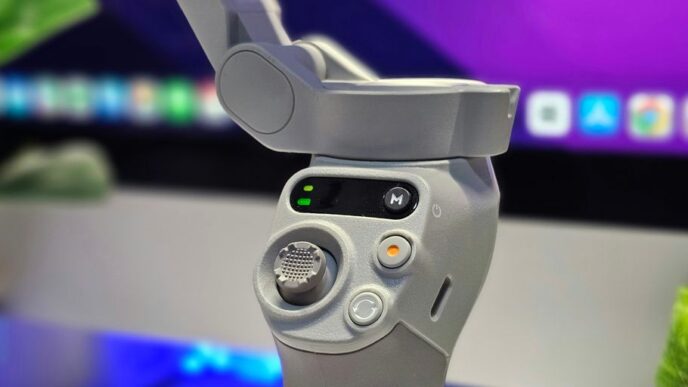In the ever-evolving semiconductor landscape, Qualcomm’s reported interest in acquiring Intel’s chip design business could be one of the most significant moves we’ve seen in years. While still in the rumour stage, this potential acquisition would have far-reaching consequences for the PC chip market, Intel’s strategic direction, and the ongoing competition between ARM and x86 architectures.
Qualcomm has long been a dominant force in the smartphone chipset market, but its ambitions clearly extend far beyond mobile devices. As the market for smartphones becomes increasingly saturated, the company has sought new growth avenues — and AI-driven PCs represent a lucrative opportunity. This pivot into the PC space isn’t just about expanding Qualcomm’s portfolio, but about positioning itself as a leader in the future of computing, where AI integration is likely to play a central role.
Qualcomm’s ARM vs. Intel’s x86: A Battle for Efficiency
At the heart of this potential acquisition lies the ongoing competition between two fundamental architectures: Qualcomm’s ARM and Intel’s x86. For decades, x86 has been the dominant architecture in PCs, with Intel and AMD controlling the vast majority of the market. However, ARM’s rise, largely due to its success in mobile devices, has introduced a viable alternative that excels in areas such as power efficiency and battery life.
With AI PCs expected to be the future of personal computing, these efficiency factors will become even more critical. Qualcomm’s Snapdragon X series, based on ARM, already shows promise in delivering superior battery life compared to Intel’s x86 chips. For users demanding powerful, portable, AI-driven devices, ARM architecture could prove to be the game-changer. Should Qualcomm acquire Intel’s PC chip design business, it could gain the expertise needed to refine its ARM offerings, providing a stronger challenge to x86’s dominance.
Intel’s Shift: A Retreat from the Consumer Market?
Intel’s challenges in recent years are well-documented. Once the undisputed king of the semiconductor world, the company has struggled to maintain its lead, particularly as competitors like AMD and Qualcomm push forward with new innovations. Intel’s restructuring, including the separation of its design and manufacturing divisions, hints at a larger strategic pivot.
If Qualcomm proceeds with this acquisition, it could signal Intel’s gradual retreat from the consumer PC market — a space where it has faced increasing pressure. Instead, Intel appears to be focusing on the enterprise and data centre markets, where its x86 architecture remains highly valuable. This doesn’t mean Intel is out of the game entirely, but rather that it is recalibrating its efforts towards areas with more long-term growth potential.
The Rise of AI PCs and a Fragmented Market
The broader significance of Qualcomm’s potential acquisition extends beyond just Intel’s fortunes. AI is rapidly becoming a central element of computing, with AI-enabled devices poised to revolutionise everything from personal productivity to enterprise-level operations. Qualcomm has been vocal about its ambitions in this space, and acquiring Intel’s design expertise could accelerate its progress.
For the consumer, this shift means more competition and, hopefully, more innovation. The PC market has been dominated by a few major players for too long, but with Qualcomm making a bold move, we could see a more fragmented and dynamic landscape. Different architectures, from ARM to x86, could coexist, each offering unique benefits depending on the use case.
The Future of Chip Design: A Turning Point
Qualcomm’s interest in Intel’s design business marks a turning point for the semiconductor industry. It’s not just a tactical move to bolster its portfolio — it’s a sign of the broader transformation occurring within the industry. AI computing is no longer a future ambition but an imminent reality, and chipmakers are rushing to position themselves at the forefront of this shift.
If Qualcomm pulls off this acquisition, it will have a significant head start in the AI-driven PC race. Intel’s once-dominant position will be further weakened, and the balance of power in the chip market could shift dramatically. As we look ahead, it’s clear that the battle between Qualcomm and Intel isn’t just about chips — it’s about the future of computing itself.
Qualcomm’s interest in Intel’s chip design business reflects the need to rethink traditional boundaries in tech. As AI becomes more integrated into our daily lives, the companies that can innovate quickly and strategically will be the ones that define the next era of computing. Qualcomm, with its eye on Intel’s assets, may be about to do just that.













